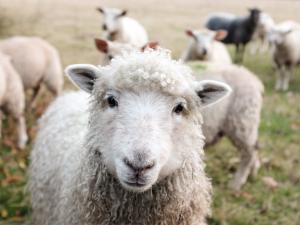Not everything is bad this morning. There’s a cease-fire in Yemen, though not because anyone wants peace but in order that the shooting may stop to cope with the spread of coronavirus. And people try to tell me that death is not that big a deal.
Anyway, I wanted to say something hopeful in response to this heartbreaking post. It is a woman quoth married to another woman, and the two are stuck inside with their son. And they are not coping well. She writes:
Our kids don’t just need us — they need more of us. Our kids are acting out, abandoning the routines they already had, dropping naps, sleeping less, doing less — except for jumping on top of their parents, which is happening much more. We’re letting them watch far greater amounts of screen time than we ever thought we’d tolerate. Forget homeschooling success — most of us are struggling to get our kids to do the basics that would have accounted for a Saturday-morning routine before this pandemic. The particular struggle reflects the most privileged perspective — that of two fully employed adults, sharing the burden, without fear of losing our jobs. Put another way, I’m not worried about how I’m going to feed my family — I’m just worried about getting my son to eat something besides a donut for two days straight.
And:
I thought by the fourth week of social distancing we would have all settled into the new norm a bit. But for my family (and others I’ve spoken to) that is not the case — things are harder than they were at the beginning. Harder because we’ve all accrued anxiety, stress, and sadness over this period. My to-do list is longer and further untouched; my guilt and anxiety for the ways my son is not being engaged enough is greater; his apparent sadness for his whole world shifting is intensified as he regularly acts out; and our collective exhaustion grows deeper.
And:
This current situation is almost prophetically designed to showcase the farce of our societal approach to separating work and family lives. We are expected to work from home full time. And care for our children full time. And we cannot have anyone outside our immediate household help. It can’t work and we all are suffering at the illusion that it does.
And then concludes: “And in the meantime, remember this: Parents are not okay.”
The horror, of course, is that lots and lots of people are not ok, are rightly stressed and anxious because they don’t know what is going to happen. And this is a fitting place to sit and suffer, because all of humanity has always been in this spot—anxious, worried about what to eat and what to wear and where the next dime will come from. The person struggling along with her child, here, wishes for another societal help, some way for her political community to come in and save her, for another system to lift the stress and strain off her shoulders. I know how she feels. I have too many jobs as well. It’s really hard to have everyone on top of each other day after day. I am not doing a good job on school, nor keeping up with my house, nor the things I’ve promised to do at church. I am overwhelmed just like everyone else.
And I agree, too much is demanded, one way or another, of most people. None of us should be “doing it all” and yet most of us are trying.
But it is into this confusion of unhappiness that Jesus came, laid aside his glory, and gathered to himself what Matthew calls in the verses I read this morning (I’m on my own private 50-year reading plan) his “little ones.” His “little ones,” of course, have been arguing about which one of them is the greatest, and they want Jesus to tell them. One of them must be and he must know. There is always some kind of order, some way of knowing who should go first. By way of answering their question, into their midst Jesus calls some little kid who’s hanging around, curious, the way little kids hang around the world over. “Unless you become like children,” Jesus explains, “you will never enter the kingdom of heaven.” The trouble is, most people don’t want to enter the kingdom of heaven, and certainly do not want to become “like children” in order to do it. They want the kingdom of heaven to break apart and become something other than it is, they want to have all the benefits of a heavenly life—peace, quietness, riches, joy—without having to cope with the person who rules over it. Anyway, after warning the disciples about the terrifying judgment awaiting anyone who leads one of these “little ones who believe in me” to sin, Jesus tells the story of the Lost Sheep.
I doubt any of the disciples were thinking of this little episode as they drank their wine and dipped their bread in the sauce during the Passover meal. They had still been perseverating about which one was the greatest, unable to relinquish the honor and glory in the kingdom they felt sure was being inaugurated right then. They were grappling, grief-stricken, with the hopeless reality that they had believed the wrong thing all along, that they had not been “like children” trusting in their friend, their God, that they did not really know what he intended to do or why. Peter was still blustering; Judas was skulking around in the night.
What do you think? Does not the one who has a hundred sheep and one of them goes astray, does he not put aside his garment and go to the outermost reaches of darkness to recover that one? In the battle for supremacy, for one’s own desires and needs to be met, even at the expense of all others, we all are “like sheep” gone astray, each to her own way, but look! The Lord has laid on Him—the very one who has the ability to find the sheep, to search her out, to know where she is and what kind of pit she has fallen into—the iniquity of us all.
There is no human system that can lift the great burden of stress and unhappiness off the human spirit, the stooped shoulders, the anxious mind. We can each rearrange our lives over and over again, trying to get it right, trying to make it ok. But each rearrangement only leaves the Lost Person, the Lost Sheep at the center, digging the pit ever deeper. But there, the Good Shepherd reaches down and pulls up the poor one lost there. Indeed, he himself is The Lamb, the efficacious and pure solution to the horror of everlasting death that awaits us.
It is not too late to become like a child, to turn and grab the person you know is strong, is good, who goes to the uttermost parts of the sea to secure your eternal and unbreakable joy.
A blessed Maundy Thursday to you all!













